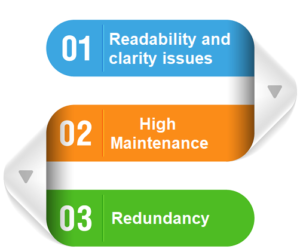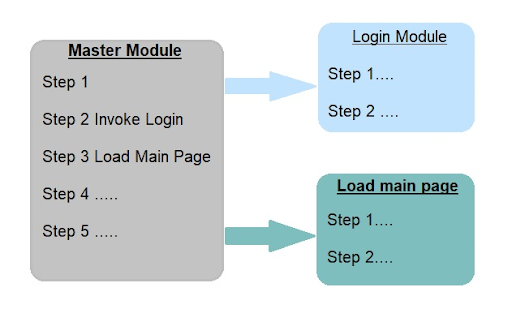Accelerate Success with AI-Powered Test Automation – Smarter, Faster, Flawless
Start free trialIn the fast-paced world of software development there is an ever-increasing demand to release software quicker. The release cycles have become shorter with the adoption of agile methodology. This addresses the market’s increasing need for speed. However, this sets the bar higher for the testing team to churn out results without compromising on the quality. It further calls for devising a smarter and more efficient way of planning, designing, and executing the test cases.
A test case is a specification of the inputs, execution conditions, testing procedure, and expected output, that needs to be executed in order to verify a specific functionality of a software.
Test case writing is a task not to be taken lightly. Deep insight and understanding of the system, along with a logical approach helps in writing good test cases. It is important to understand the ultimate objective of testing and then start working on a course of action in order to achieve it. However the task does not end here as often this results in the tester creating long, complicated, and incomprehensible test cases.
Challenges of Long Test Cases
There are times when a tester tends to write long test cases without realizing that it poses many challenges later in the test cycle. The primary challenges faced while writing such test cases are:

A Modular Approach to Write Test Cases
A good tester always looks at the larger picture rather than focusing on compartmentalized information.
The first step towards modularization is to have a good understanding of the interactions between various requirements. Once clarity about interactions is realized, it is time to break down the test cases into logical and manageable units aka modules. The idea is to have independent units that can be further reused by other test cases. A master test case can invoke these test modules as per the functionality under test.
Let us consider a very basic example of the testing flow of a website from the login page. In a typical login process, on successful login, the main page of the website is loaded. One way is to write test cases encapsulating all these steps, another is to break it down and invoke as per the need.

Modularization reduces test case maintenance to a high degree. For example, in case there is a change in any module, it is reflected in all the test cases invoking that module automatically. This is a far better approach than making changes at every place in a non-modular scenario.
It is always a good approach to create a versatile and generic module that can be reused in different scenarios. Parametrization helps in achieving this goal. Different values and combinations of parameters render variation and flexibility to the test cases. Consider the example shown in the previous figure of login. Usernames and passwords can be used as parameters to invoke the login module. This way the same test can be invoked and executed by different calling modules based on the value passed.

Even More Reasons to Use a Modular Approach to Writing Test Cases
| #Reason | Description |
| Saves Time | The modular approach significantly reduces the time and effort taken to test/re-test the software, especially in the agile setup. Also, in case of any changes, the time taken to rewrite one module is much lesser than rewriting at multiple places. This also has a direct positive impact on the delivery time. |
| Cost-efficient | Modular test cases significantly reduce test rewriting efforts in case of any changes. This optimizes the time and efforts invested in testing, which consequently results in a cost-efficient model. |
| Reduced maintenance overheads | In the event of any changes to a particular segment of code, the test case module reflecting it only needs to be changed. There is no need to rewrite multiple test cases to incorporate that change. This makes test case maintenance comparatively an easier task. |
| Building blocks for automation | Smaller modules are easier to manage and are good candidates for automation. They can be easily debugged in case of any issues and are easy to maintain. |
| Improved quality | Productivity is maximized with minimal rework in case of a modular approach. |
| Better test coverage | It is much easier to cover various test branches with a modular approach. Parameterization helps in providing a variety of inputs which further traverse code as per the output generated by the test module. |
| Easier to debug | It is much easier to locate the source of error with the modular approach without going through the tedious process of navigating a long piece of code. |
| Consistent testing process | Modular test cases help in building test case repositories which can be maintained easily. These test case libraries can be categorized and reused across multiple projects. This makes the testing process relatively consistent. |
| Building a test case library | Modular test cases serve as reference points for the future. In fact, testing scenarios generated from using these modules can be used to provide insights to the team or new testers. |
Conclusion
Documentation is an important part of the software testing process. Test cases are integral to test documentation and aid in requirement mapping, future referencing, and form a base repository for test automation. By deploying a modular approach towards test case design efficiency is boosted while redundancy is reduced.
Webomates offers a regression testing service that uses AI Automation and automation supplemented with manual testing (test case-based and exploratory-based) and crowdsourcing together to guarantee that all test cases (even modified ones) are executed in 24 hours.
At Webomates, we continuously work to evolve our platform & processes in order to provide guaranteed execution, which takes the testing experience to an entirely different level, thus ensuring a higher degree of customer satisfaction.
If you are interested in learning more about Webomates’ CQ service please click here and schedule a demo, or reach out to us at info@webomates.com

Leave a Reply